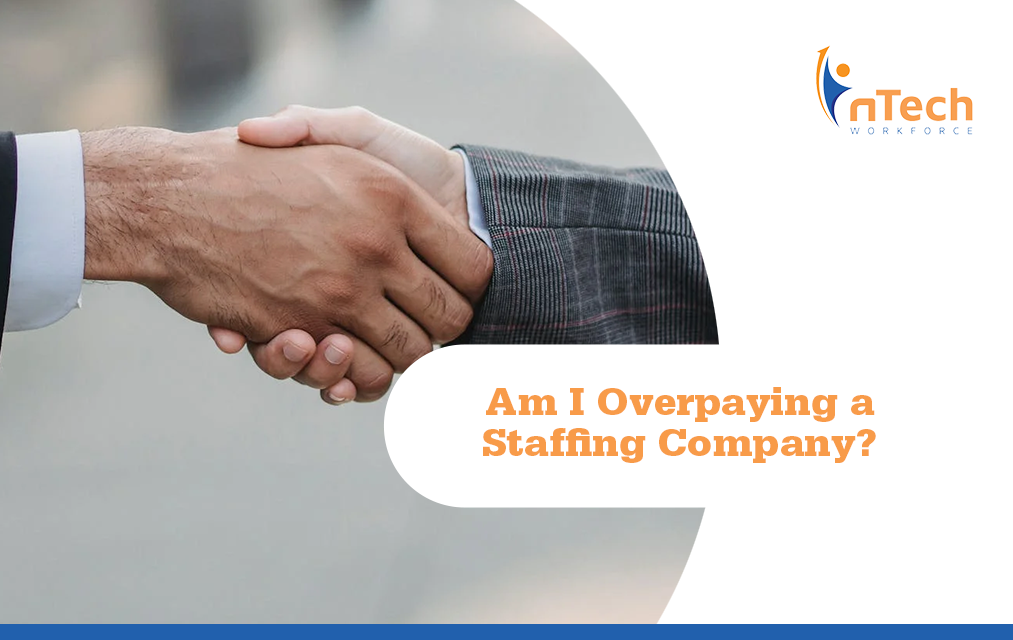In the ever-evolving landscape of the workforce, there's a pressing need to address systematic issues, drive community engagement, and deliver sustainable solutions. At the forefront of this movement is a mission to build stronger communities, foster resilience, and promote equity. This mission involves the symbiotic relationship between businesses and communities, the nurturing of which leads to long-term value creation.
In this edition of nSider, Arthur Ransier, Director of Business Strategy at nTech Workforce, explains a path toward aligning key business priorities with strong corporate citizenship. Drawing from a five-year journey of bringing formalized community impact to nTech, he talks about how staffing companies are positioned as pillars in their community. Yet, considering the breadth of the staffing industry and the volume of staffing companies, he doesn’t see many industry peers while volunteering.
“The first step is to find your place,” Ransier says, “Most nonprofits need and will welcome volunteers, but you’ll be most successful in building relationships where you’re aligned to the mission and passionate about making an impact. No matter where you are, you will find business leaders, people managers, and other decision-makers. In time, as you roll up your sleeves and make a regular impact in the community, you’ll find that they aren’t your prospects or clients; they’re your friends, and they care about some of the same causes as you do. You won’t get that with a cold call.”
Why is Community Impact Crucial?
Community impact refers to the ripple effect businesses have on the world around them. It's more than profits or growth; it's about elevating those around you and making a tangible difference. Every touchpoint a company has with those around them shapes this impact; indeed, a company’s impact is its brand, from the services it offers and standards it upholds to its values and participation in solving local issues. For businesses specializing in staffing and recruiting, success is measured by the positive changes they foster in the lives of employees, partners, and customers. By building a collaborative community, they set the stage for sustainable growth and long-term value creation.
At its core, community impact seeks to improve everything and everyone in the business's sphere of influence. It’s a holistic approach, encompassing content creation, strategic planning, experience delivery, partnerships, and most importantly, the responsibility a business has to its community. In this age of digital interconnectedness, the reach of a company is vast, spanning local neighborhoods to global digital networks. The true measure of success, therefore, lies in the quality of conversations, the depth of engagement, and the real, tangible value created in and for the community.
How Can Workforce Development Address Current Labor Market Inefficiencies?
The labor market today faces a multitude of challenges. From a mismatch of skills to a lack of meaningful opportunities for low-wage workers, there's a pressing need to address inefficiencies. Through extensive engagement with clients and in-depth market analysis, it's evident that opportunities for career advancement, especially for front-line positions, are scarce. Workforce development investments have traditionally been focused on middle-market and large enterprises, the same companies that make strategic decisions to outsource outside of their core competencies.
According to Ransier, “The "war for talent" and "skills gap" may be jargon but represent real, tangible challenges in connecting people and jobs. At nTech, our North Star metric states; how many people did we connect with a job? Innovative solutions like the LEVEL-UP program by nTech aim to disrupt antiquated hiring models to increase the number of people we start in jobs, focusing on efficiency, effectiveness, cost, and social impact. For the labor market to truly evolve, it needs a more holistic, inclusive, and equitable approach comprising not only workforce development but case management and wrap-around services. We can’t rely on traditional workforce development models to solve these issues, when estimates show that around half of jobs for middle-market and large enterprises, often low-wage jobs, are outsourced. We need more investments into building career pathways for all workers.”
Why is a Focus on Diversity, Equity, and Inclusion Non-Negotiable?
Shareholders and consumers alike now prioritize diversity, equity, and inclusion (DEI). Beyond being ethical imperatives, these factors drive innovation, foster community engagement, and promote economic growth. However, a glaring gap exists when it comes to DEI initiatives in the contingent workforce. With technology slated to displace a significant portion of jobs in the coming decade, there's an urgent need to empower those without formal degrees, a demographic that includes a significant portion of minority populations. Indeed, diverse perspectives will create conflict, but there are practices to manage conflict and harness the power of diversity.
Research sheds light on the stark realities. Screening out non-degree holders excludes a vast talent pool, including veterans who've acquired invaluable skills during service and individuals who've pursued alternative credentialing routes. By sidelining these potential contributors, businesses are missing out on the diverse perspectives and skills they bring to the table. When employers screen out applicants without a four-year degree, they exclude over 70 million qualified workers, skilled through alternative routes (STARs).
How Can Businesses Foster Long-Term Value Creation in Communities?
It's a well-accepted fact that businesses have a role to play in community development. This responsibility extends beyond mere corporate citizenship or responsibility initiatives. For businesses like nTech, community engagement isn't just an add-on; it's embedded in their DNA. By understanding systemic issues, volunteering, and forging strong local partnerships, such companies create pathways for underrepresented groups to access career-ladder jobs.
Fostering long-term value isn't about one-off initiatives or short-term gains. It's about creating sustainable and impactful solutions that stand the test of time. nTech's decades-long engagement in the Baltimore area, for instance, underscores this commitment. By innovating processes, focusing on efficiency and social impact, and leveraging local support, they aim to redefine the future of staffing.
The intersection of community impact and profitability can sometimes seem at odds in a business context. Businesses have plenty of opportunities to reconcile this and ensure that the company remains both community-driven and profitable, without compromising on either front. As Ransier explains, “The formula is a work in progress. What I know is that the first step is being involved and invested in the success of the community. You need to be mission-driven and work to build sustainable and impactful solutions for those in the community. Being involved means learning about systematic issues and working on community-led solutions. If we can sustainably improve the conditions of our community, then we will make those investments because it's the right thing to do.”
What Does the Future Hold For Workforce Development?
The future of workforce development is bright, provided there's a concerted effort to forge public, private, and social sector partnerships. The focus needs to shift from mere job placement to comprehensive career development. Solutions like LEVEL-UP exemplify this shift, aiming to place individuals in entry-level jobs and provide them with the tools to climb the career ladder.
To truly make an impact, businesses must have a finger on the pulse of the community. This means understanding local challenges, tapping into local talent pools, and constantly innovating to stay ahead of the curve. By doing so, companies not only contribute to community development but also ensure their sustainable growth. Bridging the gap in workforce development isn't just about addressing labor market inefficiencies; it's about creating a brighter, more inclusive future. Businesses, communities, and individuals all stand to gain when they come together, driven by a shared vision of sustainable growth and community impact. The journey might be challenging, but the rewards - both tangible and intangible - make it all worthwhile.
At nTech Workforce, we believe that growth, profitability, and social impact are deeply intertwined. Sustainable growth is driven not just by profits, but by the positive change we create in our community. The intertwining of these elements allows us to build a legacy of meaningful impact, fostering long-term value and well-being in the communities we serve.





